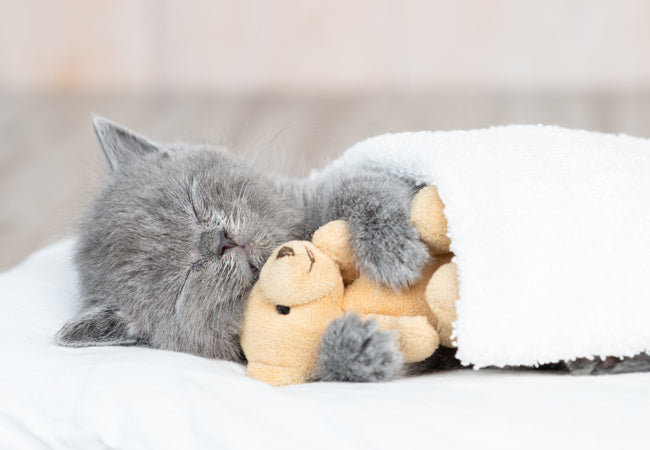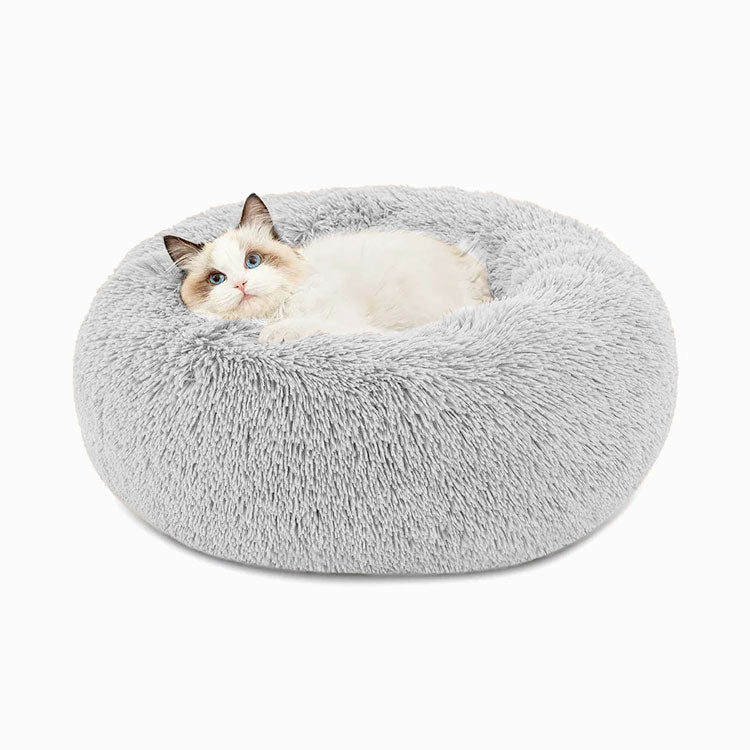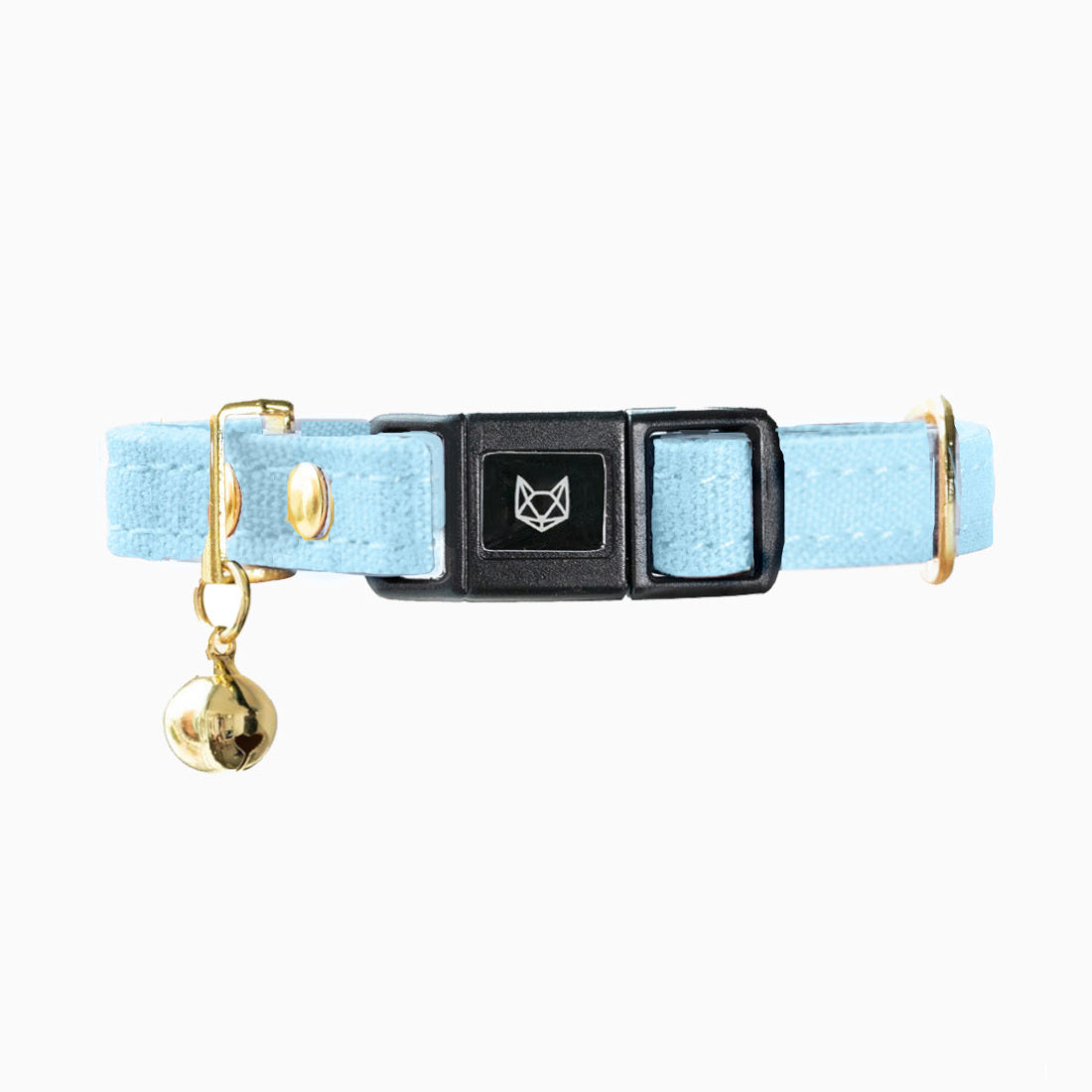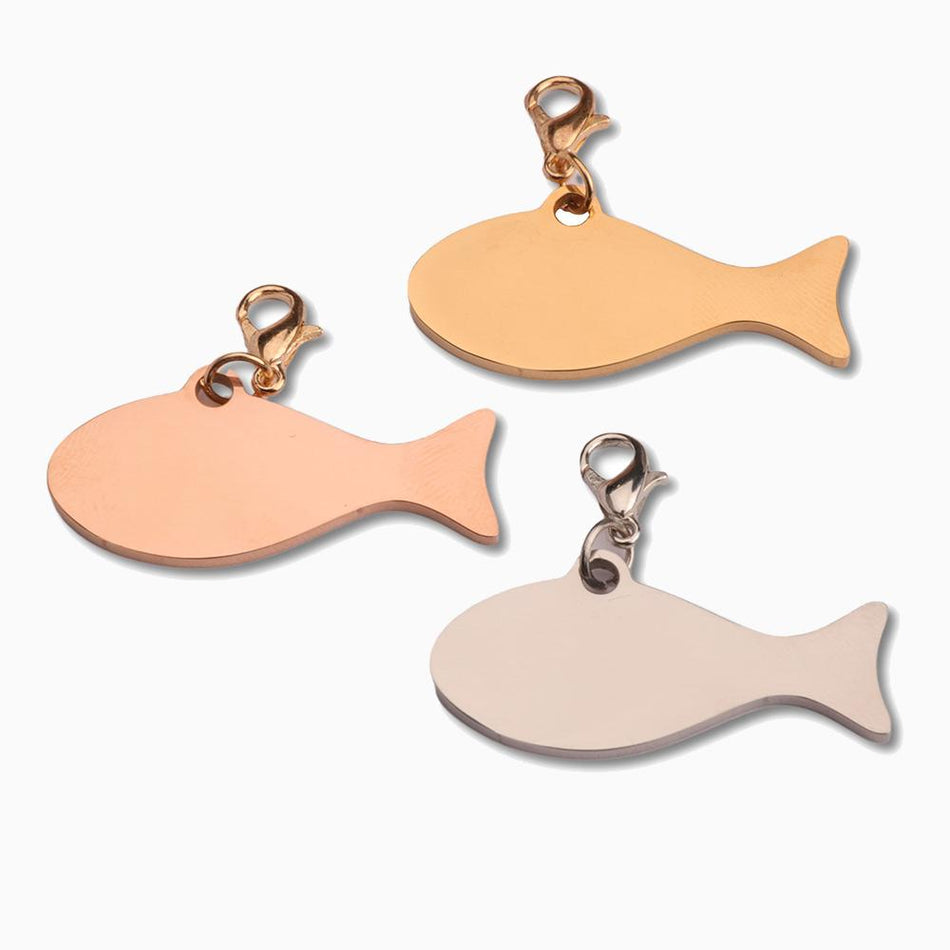The Ultimate New Kitten Checklist: Everything You Need to Welcome Your Furry Friend
Welcoming a new kitten into your home is an exciting adventure filled with cuddles, playtime, and adorable antics. However, preparing for your new furry friend's arrival is crucial to ensure they feel safe, comfortable, and loved from day one. To help you navigate this thrilling journey, we've compiled an ultimate checklist of essentials every new kitten owner should have. Whether you're a seasoned cat parent or embracing the joy of kittenhood for the first time, this guide is designed to answer your questions and ensure you're well-prepared.
1. Comfy Calming Cat Bed
Your kitten needs a cozy spot to rest after a day full of explorations and adventures. A comfy calming cat bed is not just a luxury; it's a necessity for your kitten's well-being. Look for beds with soft, plush materials that provide warmth and comfort. A bed with raised edges can help your kitten feel secure and protected, mimicking the cuddle of a mother cat.
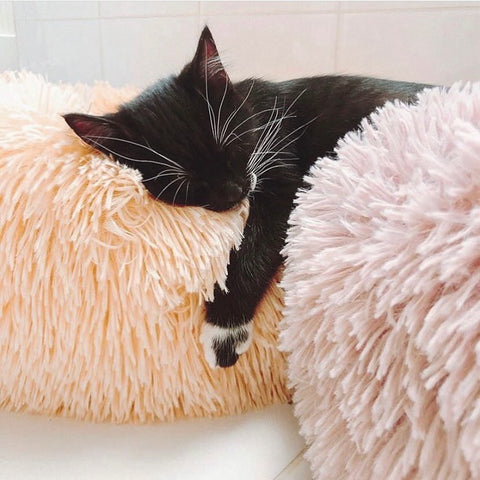
Our 3 month old kitten Billie, in our Calming Pet Bed
2. Kitten Collar
Safety comes first, and a kitten collar is essential for your pet's identification and security. Choose a collar that's lightweight, adjustable, and features a breakaway clasp for safety. Don't forget to attach an ID tag with your kitten's name and your contact information. This simple step can be a lifesaver if your adventurous little one ever slips outside.
Related: Should Kittens Wear A Collar?
3. Feeding Bowl
Nutrition is key to your kitten's growth and health. Invest in a high-quality feeding bowl that's sturdy, easy to clean, and kitten-sized. Some owners prefer shallow bowls to prevent whisker fatigue, ensuring a comfortable eating experience for their pets. Remember, clean, fresh water should be available at all times, so consider a separate bowl for hydration.
4. Cat Toys to Make Them Social
Playtime is crucial for your kitten's physical and mental development. It's also a golden opportunity to bond and socialize with your new pet. A variety of cat toys, such as interactive toys, balls, and feather wands, can keep your kitten entertained and teach them important social skills. Toys also help kittens learn how to control their bite and use their energy positively.
5. Scratch Post or Pad
Scratching is a natural and necessary behavior for cats, allowing them to stretch, mark their territory, and maintain their claws. A scratch post or pad can save your furniture and provide your kitten with a healthy outlet for their instincts. Place it near their favorite resting area for easy access.
6. Litter Box and Litter
Introducing your kitten to a litter box is essential for toilet training. Choose a box that's easy for your kitten to access and fill it with a kitten-safe litter. There are various types of litter available, including clumping, non-clumping, and silica gel. Consider starting with a non-clumping, dust-free variety to avoid any health risks if your kitten decides to taste-test their litter.
7. Grooming Tools
Even though kittens are excellent self-groomers, they'll still need a little help from you. A soft-bristled brush can help remove loose fur and reduce shedding, while nail clippers are necessary for keeping their claws at a safe length. Start grooming your kitten early to get them accustomed to the process, making it a stress-free experience for both of you.
8. Kitten-Specific Food
Your kitten's diet is fundamental to their growth and overall health. Opt for high-quality, kitten-specific food that's rich in protein and essential nutrients. Consult with your veterinarian to determine the best type and amount of food for your kitten's age, weight, and health condition.
9. Travel Carrier
A sturdy travel carrier is indispensable for safe transport to vet appointments or any adventure outside your home. Ensure the carrier is well-ventilated, secure, and large enough for your kitten to stand, turn around, and lie down comfortably.
10. Health Care Plan
Last but certainly not least, a visit to the veterinarian should be at the top of your checklist. Your kitten needs vaccinations, a health check, and a discussion about the best time for spaying or neutering. Establishing a healthcare plan early on is crucial for a long, happy, and healthy life.
Frequently Asked Questions by New Kitten Owners
Q: How do I make my home safe for a new kitten? A: Kitten-proof your home by securing loose wires, removing toxic plants, and ensuring small objects that could be swallowed are out of reach. Creating a safe environment allows your kitten to explore with less risk of injury.
Q: How can I help my kitten settle in? A: Give your kitten time to adjust to their new surroundings. Set up a quiet, comfortable space with all their essentials—food, water, bed, and litter box. Spend quality time with your kitten, offering gentle petting and playtime to build trust and bond.
Q: How often should I feed my kitten? A: Kittens have small stomachs and require several small meals throughout the day. Follow the feeding guidelines on your kitten food packaging or consult with your vet to determine the best feeding schedule and amount.
Q: When should I start training my kitten? A: You can start training your kitten from the moment they arrive. Use positive reinforcement techniques, such as treats and praise, to teach them basic commands and litter box usage. Remember, patience and consistency are key.
Welcoming a new kitten into your life is an enriching experience that brings joy and companionship. By following this checklist, you're ensuring your kitten has a smooth transition into their new home and a healthy start to life. Remember, every kitten is unique, and getting to know your new friend's personality and needs is part of the wonderful journey of pet parenthood.

